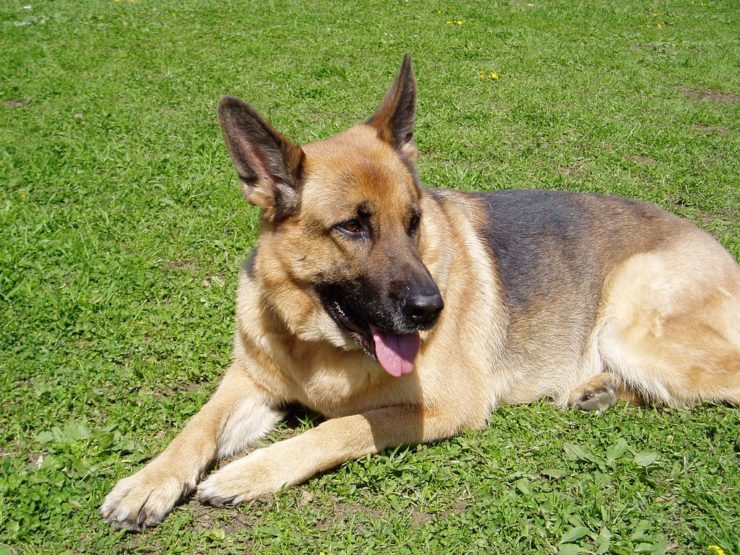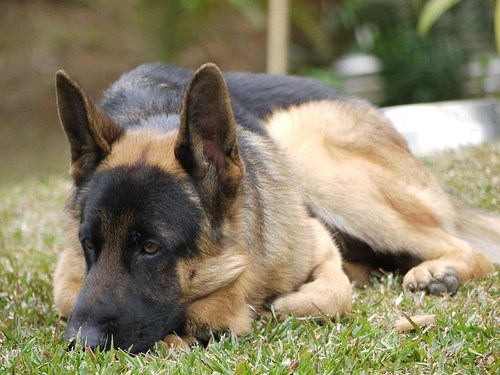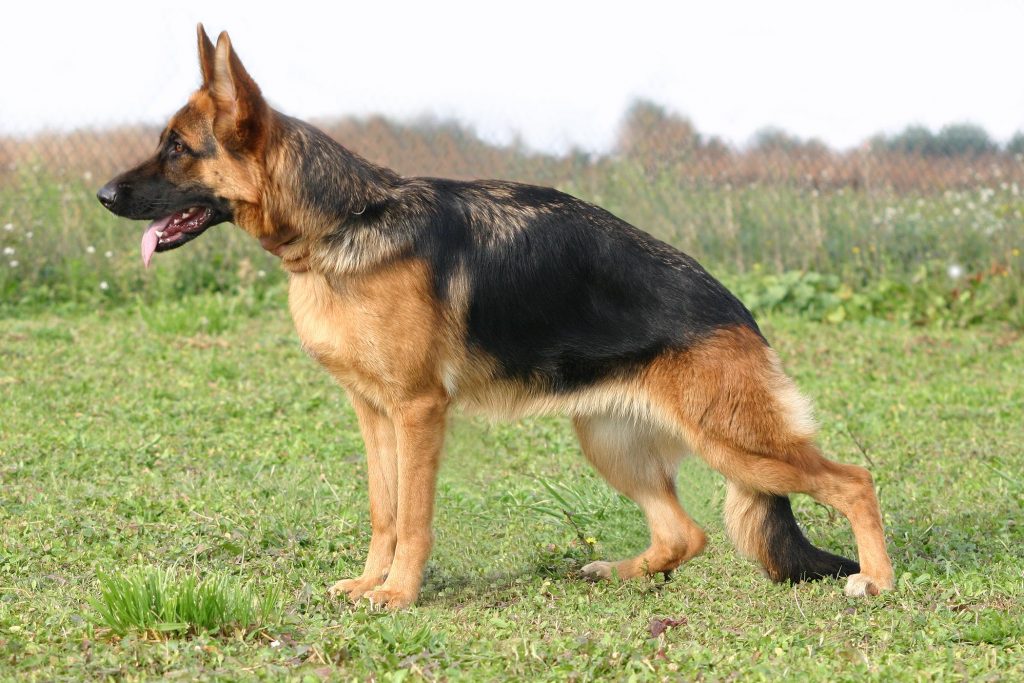German Shepherds are a very popular breed of dog and are recognized throughout the world. They are known for being loyal, protective, and highly intelligent dogs. Other aspects that are known about them are that they usually have a sensitive stomach and can be upset from time to time.
You should always pay close attention to your dog’s diarrhea episodes to know when you can treat him at home and when you need to see the vet. There are many causes of diarrhea in German Shepherds where some are normal from some food and others are quite serious.
What Is Diarrhea?
Contents
Diarrhea in German Shepherds is a very common digestive problem because this breed is born with a sensitive stomach. To differentiate it from other intestinal problems, you should know the following aspects:
- Diarrhea in German Shepherds is the common passage of watery, loose, or liquid stools.
- Diarrhea is the symptom of a simple intestinal infection or an underlying or more serious illness that can cause it.
- Diarrhea can arise in the large intestine or the small intestine.
- Diarrhea is a condition that can cause dehydration.
- Diarrhea is how the digestive system can protect the body from dangerous and irritating organisms and eliminate them. The colon carries water to the stomach and consequently soft and liquid stools.
Types Of Diarrhea
According to veterinarians, there are two types of diarrhea: acute diarrhea and chronic diarrhea. Acute diarrhea in German Shepherd puppies is very common, is a sudden condition, and can last for a few days or even up to a few weeks. Sometimes it can be fixed in 24 hours on its own.
What Are The Symptoms Of Acute Diarrhea?
The symptoms of acute diarrhea are:
- German Shepherds with acute diarrhea can lose weight because they lose their appetite and nutrients.
- Diarrhea with mucus may be seen when acute
- GSDs with acute diarrhea will experience gas pains and a lot of bloating that can lead to lethargy.
- Restlessness and restlessness
- The German Shepherd may have a fever and more if the GSD has an infested intestine.
- Dehydration depending on how many days you have the condition.
Chronic Diarrhea
When your German Shepherd has diarrhea for a few weeks without standing, it is known as chronic diarrhea. Usually, the stool amount is more than normal and can be caused by more serious underlying conditions.
What Are The Symptoms Of the Chronic Diarrhea In GSDs?
Symptoms of diarrhea can be different depending on where they originate.
The symptoms of small bowel diarrhea are:
- Your German Shepherd puppy may have vomiting and diarrhea
- Diarrhea with black or tarry blood
- Loose or liquid stools 2 to 5 times a day and in large amounts
- You can hear your dog’s gas
- Loss of it due to vomiting
Symptoms of diarrhea of the large intestine are:
- Passing loose stools more than five times a day, but the amounts are smaller
- GSD puppies and dogs can evacuate with pain and with great difficulty
- Diarrhea may have mucus and streaks of red blood visible to the naked eye.
German Shepherd Diarrhea Causes

The causes of German Shepherd diarrhea can affect both adults and puppies.
- Irritable Bowel Disease (IBD) and Irritable Bowel Syndrome (IBS) are very different syndromes. Usually, in IBS, the stress in German Shepherd puppies is the reason for diarrhea. While IBD is a disease that is inherited and causes the intestines and stomach to react to constant intestinal irritations.
- GSD puppies lick and taste anything they come across and may eat spoiled food out of curiosity.
- Some foods can alter German Shepherds’ intestinal flora, such as cereals, too much fiber, milk, corn, and fat.
- Changes in diet.
- Allergic reactions to some medications or substances can cause diarrhea.
- Intestinal parasites can attack German Shepherd puppies because they are not dewormed.
- Liver disease can cause chronic diarrhea.
- The pancreas and thyroid also cause diarrhea.
- It can be a symptom of exocrine pancreatic insufficiency. If the pancreas does not produce enzymes for digestion and German Shepherds will not digest food correctly.
- Parvovirus and distemper in German Shepherds can affect the digestive system.
- In German Shepherds, bowel cancer is very common. Most are males between the ages of 6 and 9.
How To Treat German Shepherd Diarrhea?

Depending on the diarrhea causes, treatments for German Shepherd diarrhea can vary. You should always avoid that German Shepherds, puppies, and adults, can become dehydrated.
-
You must assess the situation.
Your dog’s soft and liquid poop is often unpleasant to deal with but should not be alarmed. Your dog may have eaten something off the floor or contracted a stomach virus. The German shepherd may have contracted bacteria from a rabbit or squirrel while in the yard.
Diarrhea caused by some of these problems can last for a few hours or days and go away on its own, just like the one caused by stress. Remember that if the stool is red or black, diarrhea lasts more than three days, you should call the vet.
-
Stop feeding for 12 hours.
If your dog has diarrhea, you can stop feeding him for 12 hours so that everything in his system can come out.
-
Give your dog water in small amounts.
You must provide him with plenty of water to avoid dehydration. You can give him ice cubes so that he is always drinking water.
-
Give solid food after 24 hours.
Give your German Shepherd solid food again after 24 hours. You can give him white rice with boneless boiled chicken in small quantities. Observe your dog’s behavior for the next 2 hours.
-
Pumpkin puree
One of the most effective home remedies for your German Shepherd’s diarrhea is pumpkin puree. It can help form firmer stools because it contains much soluble fiber.
-
Give him bone broth.
This broth can help your dog calm his upset stomach.
How To Prevent German Shepherd Diarrhea?
Diarrhea in German Shepherds is often difficult to avoid because this is a breed that suffers from gastrointestinal diseases. To prevent them, you can follow the following tips:
-
Must clean frequently
Clean your entire home to prevent your German Shepherd from eating garbage or rotting things.
-
Give probiotics
You can give probiotics daily so that your German Shepherd’s stomach is protected from bad bacteria.
-
Comply with vaccination schedules
You should always adhere to your veterinarian’s deworming and vaccination schedules.
-
Avoid raw foods
GSDs are dogs that have a sensitive gut, and you should avoid feeding them raw food because they can lead to life-threatening illnesses.




